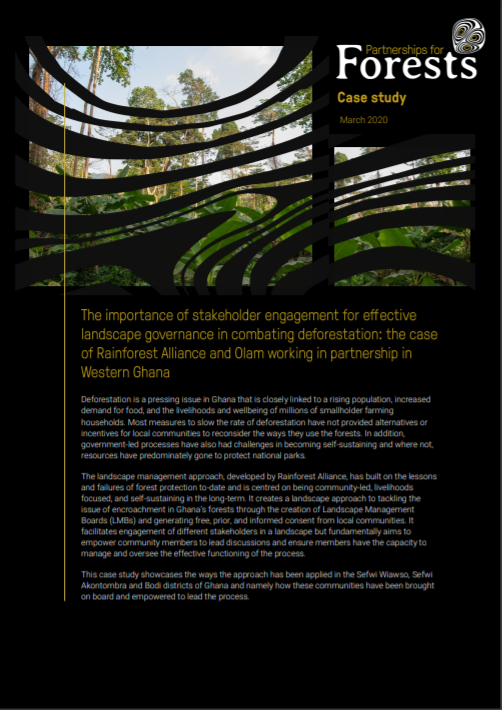The Importance of Stakeholder Engagement for Effective Landscape Governance in Combating Deforestation
Deforestation is a pressing issue in Ghana that is closely linked to a rising population, increased demand for food, and the livelihoods and wellbeing of millions of smallholder farming households. Most measures to slow the rate of deforestation have not provided alternatives or incentives for local communities to reconsider the ways they use the forests. In addition, government-led processes have also had challenges in becoming self-sustaining and where not, resources have predominately gone to protect national parks.
The landscape management approach, developed by Rainforest Alliance, has built on the lessons and failures of forest protection to-date and is centred on being community-led, livelihoods focused, and self-sustaining in the long-term. It creates a landscape approach to tackling the issue of encroachment in Ghana’s forests through the creation of Landscape Management Boards (LMBs) and generating free, prior, and informed consent from local communities. It facilitates engagement of different stakeholders in a landscape but fundamentally aims to empower community members to lead discussions and ensure members have the capacity to manage and oversee the effective functioning of the process. This case study showcases the ways the approach has been applied in the Sefwi Wiawso, Sefwi Akontombra and Bodi districts of Ghana and namely how these communities have been brought on board and empowered to lead the process.
